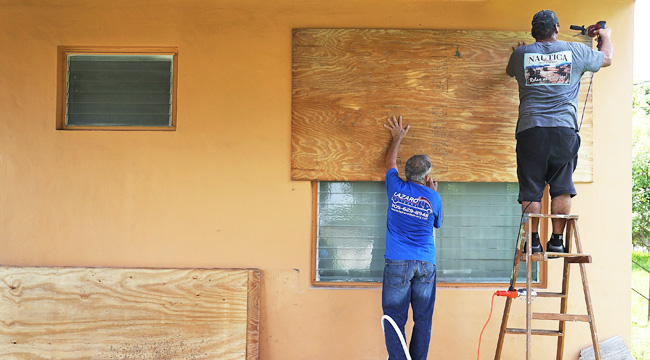
As evacuation orders roll out in Florida ahead of behemoth Hurricane Irma, Sheriff Grady Judd of Polk County sent out a tweet warning anyone with an outstanding warrant that trying to hole up at an evacuation shelter means going directly to jail. While he specifically mentioned sex offenders as an example of who isn’t welcome in the shelters, the implications of Sheriff Judd’s tweet extend beyond hypothetical pedophiles and rapists showing up at FEMA shelters.
If you go to a shelter for #Irma, be advised: sworn LEOs will be at every shelter, checking IDs. Sex offenders/predators will not be allowed
— Polk County Sheriff 🚔 Grady Judd (@PolkCoSheriff) September 6, 2017
Does "predators" here incl ex-cons with non-sex records? Man did a home inv 20 yrs ago, served his time, reformed: Could he be turned away?
— Jonathan Whatley (@jonathanwhatley) September 6, 2017
The complex ethics involved with Judd’s move can’t be fully sussed out in a single tweet, and the policy raises a number of questions. Some tweeters wondered whether their unpaid parking tickets or a decades-old crime on their record could result in spending the night in a jail cell rather than on a FEMA shelter cot.
Are you saying those without an ID will be turned away from shelter?
— byron (@byron_c) September 6, 2017
Another question raised was whether this means anyone without an ID will be turned away from shelters. There are plenty of people without ID who aren’t criminals or suspects — the homeless and people who have lost their identification in the storm, for example. Or, say, undocumented immigrants, of whom there are 450,000 living just in South Florida.
Florida doesn’t currently have the roadside checkpoints that had many undocumented Texans afraid to evacuate ahead of Hurricane Harvey for fear of running into ICE on the road or in a shelter. In fact, some immigration offices are already shutting down ahead of the storm. But during Harvey, policies like Sheriff Grady’s caused such fear and confusion that ICE had to issue some murky statements noting that while immigration laws weren’t suspended, its officers were busier with search and rescue than detentions.
So far it seems that the Polk County policy has stirred up equal amounts of confusion and reassurance. They might want to straighten out some of the ethical and logistical questions their tweets have raised before Hurricane Irma arrives.
